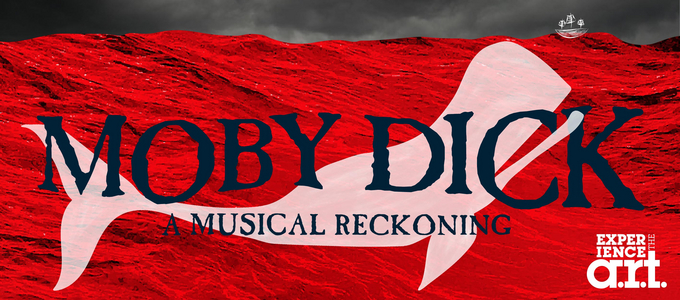Interview: Dave Malloy Talks London's GHOST QUARTET and Previews MOBY-DICK
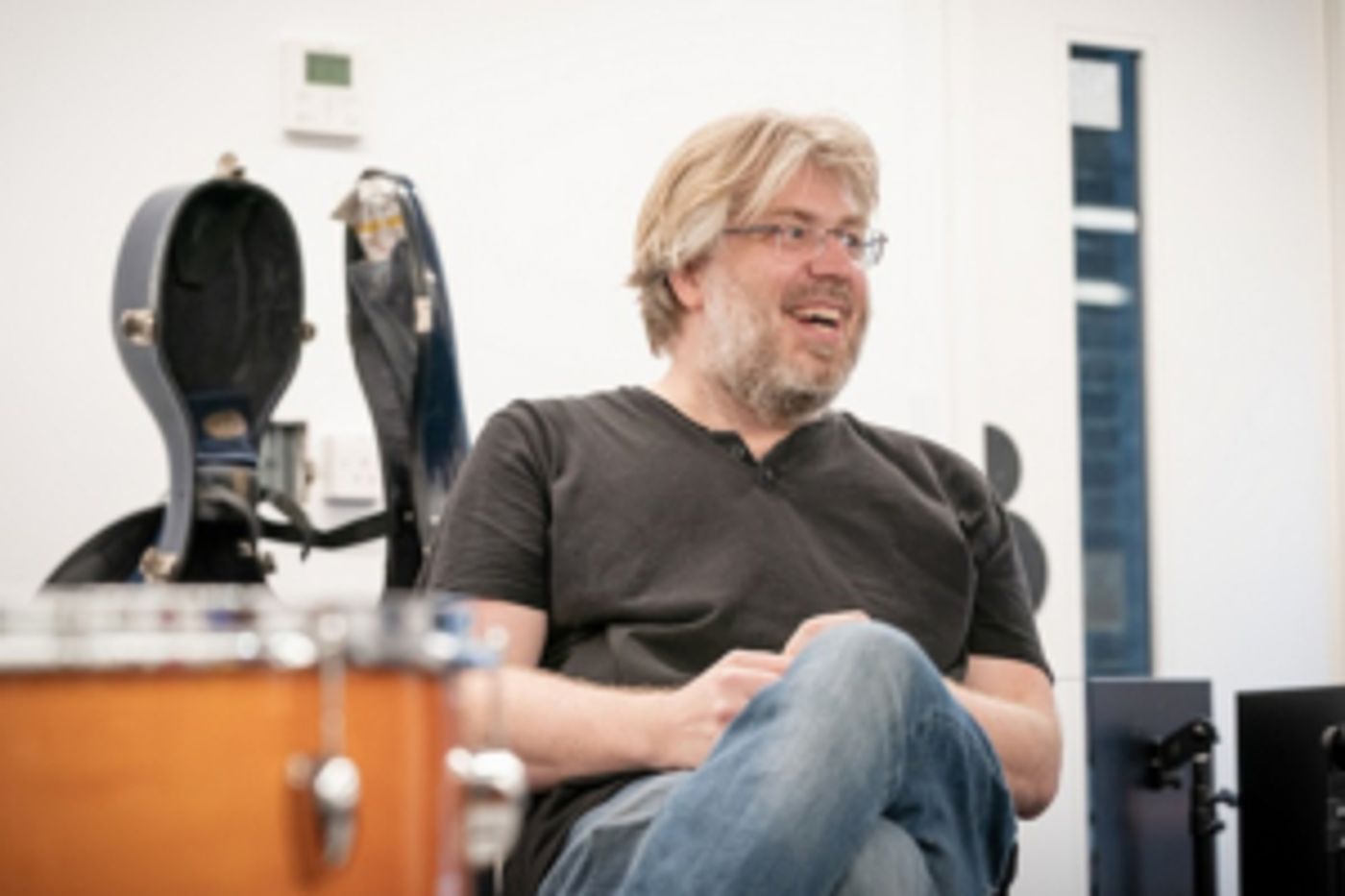
for Ghost Quartet
Composer, writer and actor Dave Malloy's work includes the Tony Award-winning Natasha, Pierre & The Great Comet of 1812, Octet, and his upcoming adaptation of Moby-Dick - the latter directed by regular collaborator Rachel Chavkin and starring Malloy.
This year, London also sees two of his shows: Preludes, soon to conclude its run at Southwark Playhouse, and Ghost Quartet, which plays at the new Boulevard Theatre from 24 October.
Do you remember the first piece of music you wrote, and what excited you about that process?
The very first piece of music I wrote was actually a choral piece. Choir was actually what really brought me to music - I learned piano as a kid and played in dumb rock bands in middle school. But when I got to high school, the high school was blessed with two incredible choir directors.
I just loved that experience of singing with 80 other voices, and they were just so passionate about music and exposed us to so many incredible pieces of music. Sometimes we would listen to pieces in class, so the very first time I even picked up a pen to write something was actually an epic choral piece. I wrote an eight-part choral piece - I think it was based on a song, I can't remember. "Lift up your head to the hills" I think was the first line. And it was impossible, like so ambitious. I gave it to the choir teacher and he was like, "I don't think this is right for high school choir, but keep going".
When did you get the theatre bug, and why did that win out against other forms of composing?
I did a bit of theatre in high school, but mostly I played in the pit orchestra. I played piano for Hello, Dolly! and Guys and Dolls and things like that, and then I grew up on musical theatre. We would watch The Music Man and My Fair Lady, but then when I went to college I was really doing concert music, music composition, writing for symphonies and chamber choirs.
At the same time, I was doing English literature and still had this real love of narrative and story, but it didn't quite connect to me, music and narrative, where they come together in musical theatre - even though I had this childhood of being raised on those movies. It wasn't until after college that I was working at a record store and a friend of mine asked me to play piano in a fringe piece of theatre that he had written. I had a blast doing it and then the director asked me to do their next show, and little by little I found myself in the theatre world.
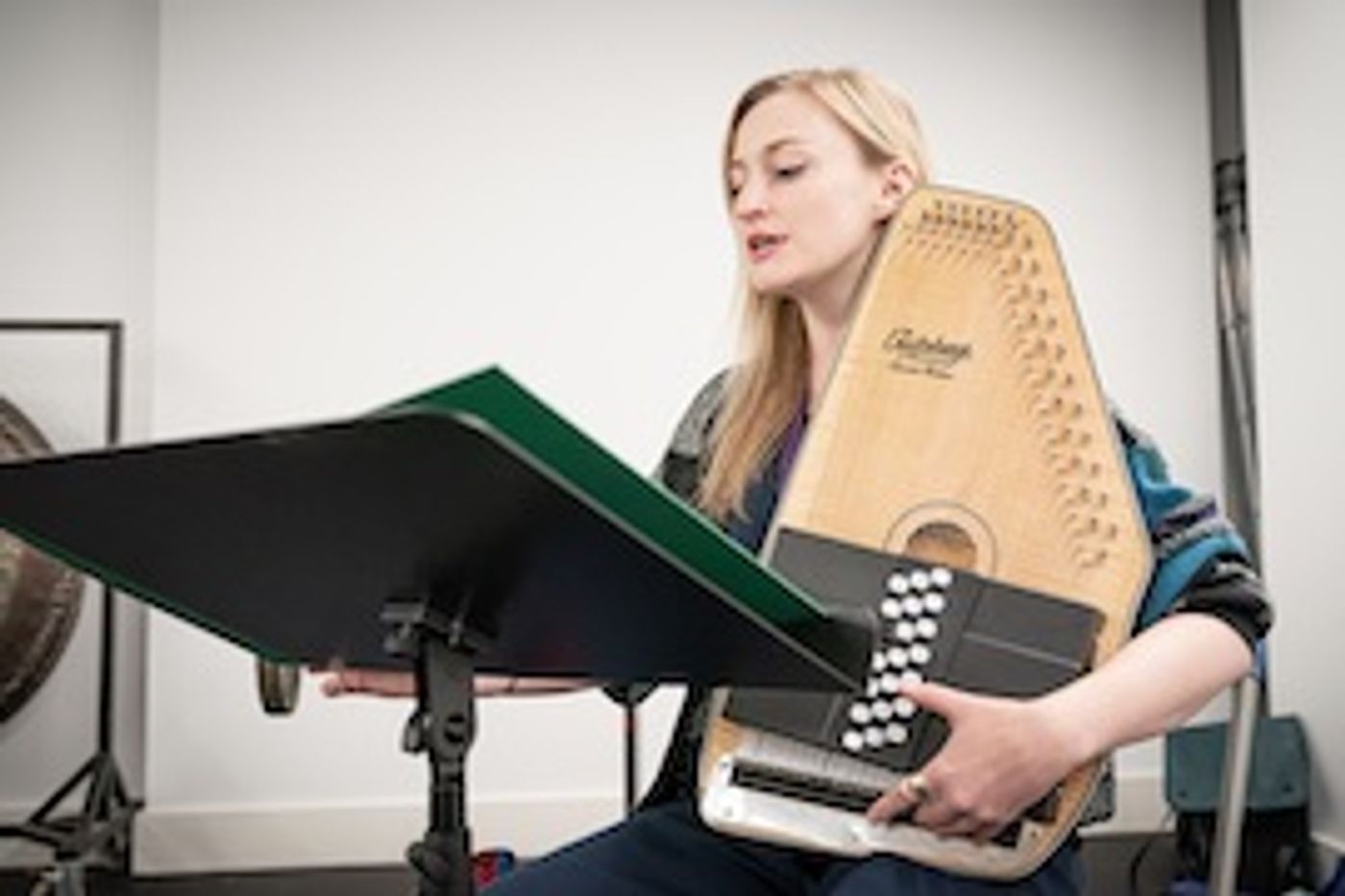
for Ghost Quartet
I was also still playing keyboards in rock and jazz bands in clubs around San Francisco, and there was something about the difference in audience and the attention that a theatre audience actually gives to a performance and the way that you can tell a narrative that takes an hour or two hours to unravel - versus, you know, performing at the bar where half the audience is drunk and not even listening to you. There's something so exhilarating about the possibilities of the form of musical theatre and of telling stories that are longer.
What's your creative starting point: lyrics, music, story, character, mood...?
It's really mood and then story. I always start with, "What does the piece want to feel like?". So with Ghost Quartet, it was very much like, I want to tell ghost stories, I want this piece to feel creepy or like we're around a campfire telling stories, and part of that is that it's funny. So when you're telling a scary story around a campfire there are jokes in it, there's whisky being passed around, there's a sense of community and camaraderie, but at the same time it turns and goes to this darker place.
So it definitely started with that. And then, for me, I always write text first, so if I'm adapting something I'll start with that text, or with Ghost Quartet, if it's original, I'll brainstorm and free-write a lot of text first. And then I sit down with that text at the piano and then the music comes from the words.
Your work is so exciting in how you experiment with form and new ideas. Was there a conscious idea of rebelling against the norm, or are you more concerned with honouring your story - whether or not it diverges from, say, more traditional musical theatre?
I think it's a combination of both. For me, the form should always follow the content - I tend to just gravitate towards stories that are experimental and strange and don't quite fit within the confines of traditional musical theatre.
At the same time, the form of traditional musical theatre is, in itself, great. There's incredible meticulous musicals that I love and revere, so I think it's wonderful to know those things, but at the same time the art I'm most drawn to in all fields is the art that's experimental and strange and explodes more. So like the two big novel adaptations, War and Peace and Moby-Dick - those are both incredibly strange novels. And so I'm most inspired by that kind of art.
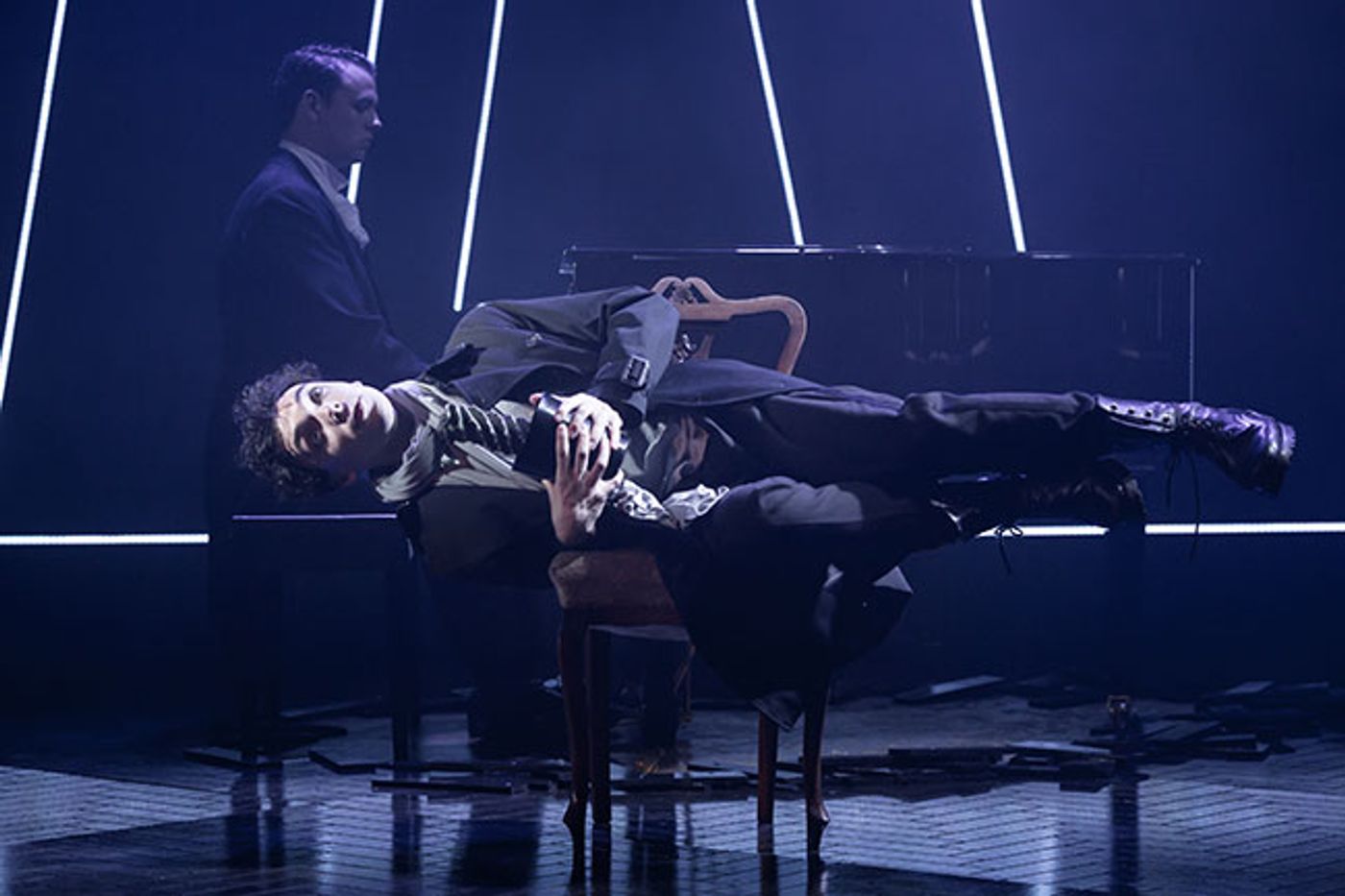
I had the honour of seeing your Great Comet on Broadway, and also recently Preludes at Southwark Playhouse. Firstly, what is it about Russian stories/music that appeals to you? And secondly, how did you find this very immediate, postmodern, fresh take?
I'm Latvian, my mother's side of the family is 100% Latvian. I definitely grew up in a Slavic culture, and so going to parties where there was vodka and cognac and singing - choral singing is a very big part of Latvian tradition. So I kind of grew up with that feeling. And then when I came across the Russians, I think it was Russian composers first - Stravinsky, Shostakovich and Prokofiev. I was just so struck by that music; so much of my favourite classical music is the Russians.
And then when I went into the literature too with Tolstoy, Dostoyevsky, Chekhov. There's something about the existential angst, ennui and the melancholy and philosophy of those works that, for whatever reason, just resonated with me and I see myself in so many of those characters. I see myself as a young Rachmaninov, I saw myself in Pierre, so many of Chekhov's characters. So yeah, it just resonates with me.
They're also such wonderfully empathetic, kind shows, and they feel very honest about creative/life struggle. Is it important to you to connect with your characters on that level, perhaps share some personal experience or a wider message?
Definitely, I feel like the pieces that I write - especially the pieces that I'm adapting because the pieces really resonated with me - usually that's because of a character. So for Comet it was Pierre - I just saw so much of myself in that character. And especially in War and Peace, that's a character you see over the course of decades and the struggles that he goes through.
I read that book first in my mid-twenties I think, and now I look at it again in my early forties, I see so much more of myself in him. So yeah, I always have a personal connection to the pieces I'm telling. With Ghost Quartet, there's so much of myself in all four of the characters.
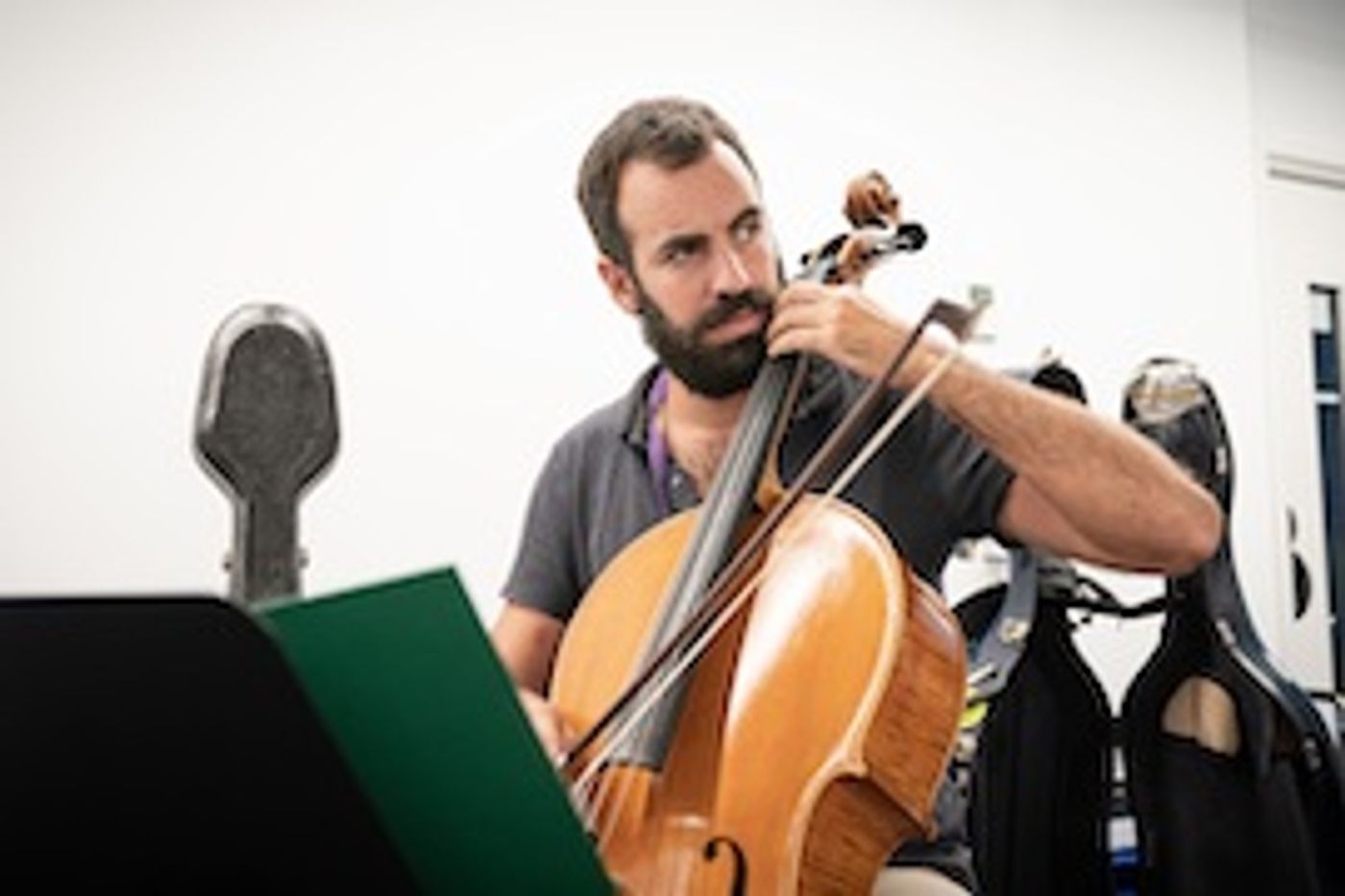
for Ghost Quartet
Your mix of musical styles is really unusual. Has that always been part of your approach to composing? And would you like to see more of that adventurousness across theatre?
Definitely, I've always ingested a really broad range of music. One of the most formative things for me as a composer was, I worked at this independent record store in San Francisco called Amoeba Music - it was the largest independent record store in America and so they had an incredibly knowledgeable staff and you could check out CDs like it was a library.
There would be incredible music playing overhead that I wouldn't know, so I would go to the reggae expert and say "Hey, what are the ten best reggae albums ever?" and he would give them to me and I'd go home and listen to them. Then I would go to the doom metal expert and say "What are the ten best doom metal albums?". So for me, it's always been exhilarating to have a really diverse listening experience.
My favourite way to listen to music is on shuffle - listen to Patsy Klein followed by Mueller, followed by Peter Tosh or something. I've always loved listening to music like that. So when I go to write music, especially when I'm writing narrative music, these stories are about the vastness of human experience and so there's so many different styles of music that can tell those stories. I love mashing them together.
It feels like the immersive experience of the productions is also a really key element. How much of that was developed with e.g. Rachel Chavkin and other collaborators? And have you rejigged your approach at all after seeing how audiences respond?
Yeah, I mean for me, the thing that's always been the most exciting thing about musical theatre versus writing concert music or film is the connection between the audience and the performers, and the fact that you're all in this room together. And part of the performance is being a member of an audience and seeing how the audience is responding to things.
Honestly, my obsession with immersive staging actually came about through happenstance. I'd written an adaptation of Beowulf with Jason Craig - I'd written the music, he'd written the book and lyrics, and we were performing that show in a small loft space in San Francisco. When we got to the space, we realised that the stage was so small that really only the band could fit on it. So the performers were like "Well, where are going to go? We'll just have to go on the floor".
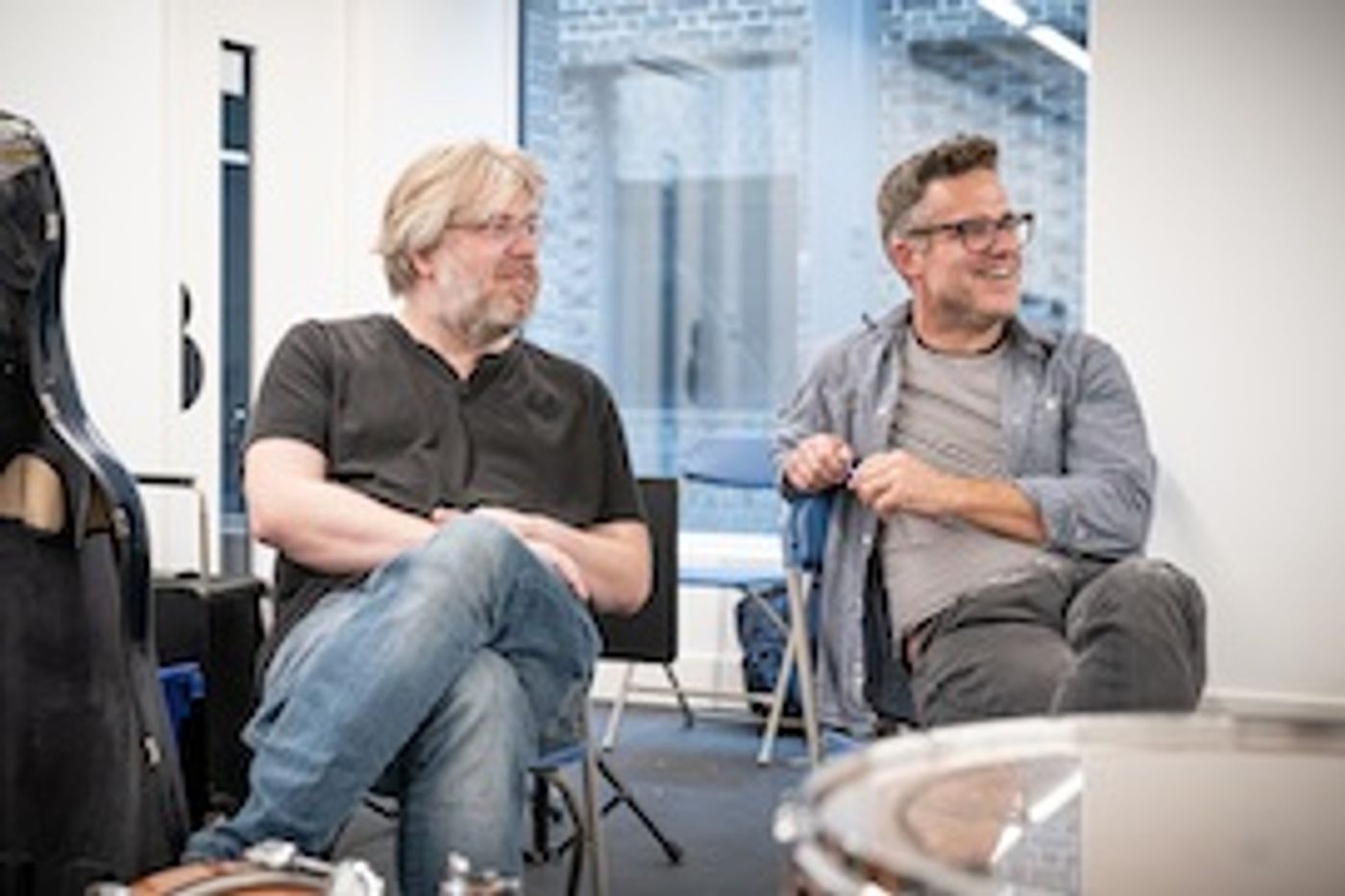
in rehearsal for Ghost Quartet
And so we kind of improvised the staging of this show, with them on the floor and audience members sitting all around them - and it was the most magical evening of theatre-making I've ever been a part of.
And it was Beowulf too, so they did the Beowulf/Grendel fight in the middle of this room, running into audience members. And I was like, ah, this is how theatre should always be. It should always be this messy and sloppy and rubbing elbows with the people in the room and letting the people in the room become part of the piece.
How does the UK theatre scene and audience differ from the US?
You know, it's been really interesting watching the responses to Preludes here, because Preludes in the US was a really divisive piece. It got an incredible review from The New York Times and then maybe one other good review, and then every other review was quite bad.
It's been refreshing and invigorating to see how differently that piece has been received here. Audiences here maybe have different expectations about what musical theatre should be, because in New York, Broadway is the centre of the ecosystem. I feel like the more experimental work, at least with Preludes, so far has been better received over here by the press - and the audiences have been great too.
So excited for Ghost Quartet at the Boulevard Theatre. Could you tell us a bit about your involvement with casting and creative development of the UK production, and how that space suits the show? And have you made any changes?
One thing I'm very excited about with this production of Ghost Quartet - I was a fan of director Bill Buckhurst, because I saw Bill's production of Sweeney Todd in New York, and was completely swept away by it; it was so exhilarating and fantastic.
So when he contacted me about having an interest in Ghost Quartet, I was thrilled and said absolutely, please do whatever you want. Then I asked him if he'd seen it, and he said no, he'd only heard the recording but had never seen a production, so I was like, oh good! I'm so excited to see what he comes up with, responding just to the music and the text. I said to him, please, run with it, do wild things!
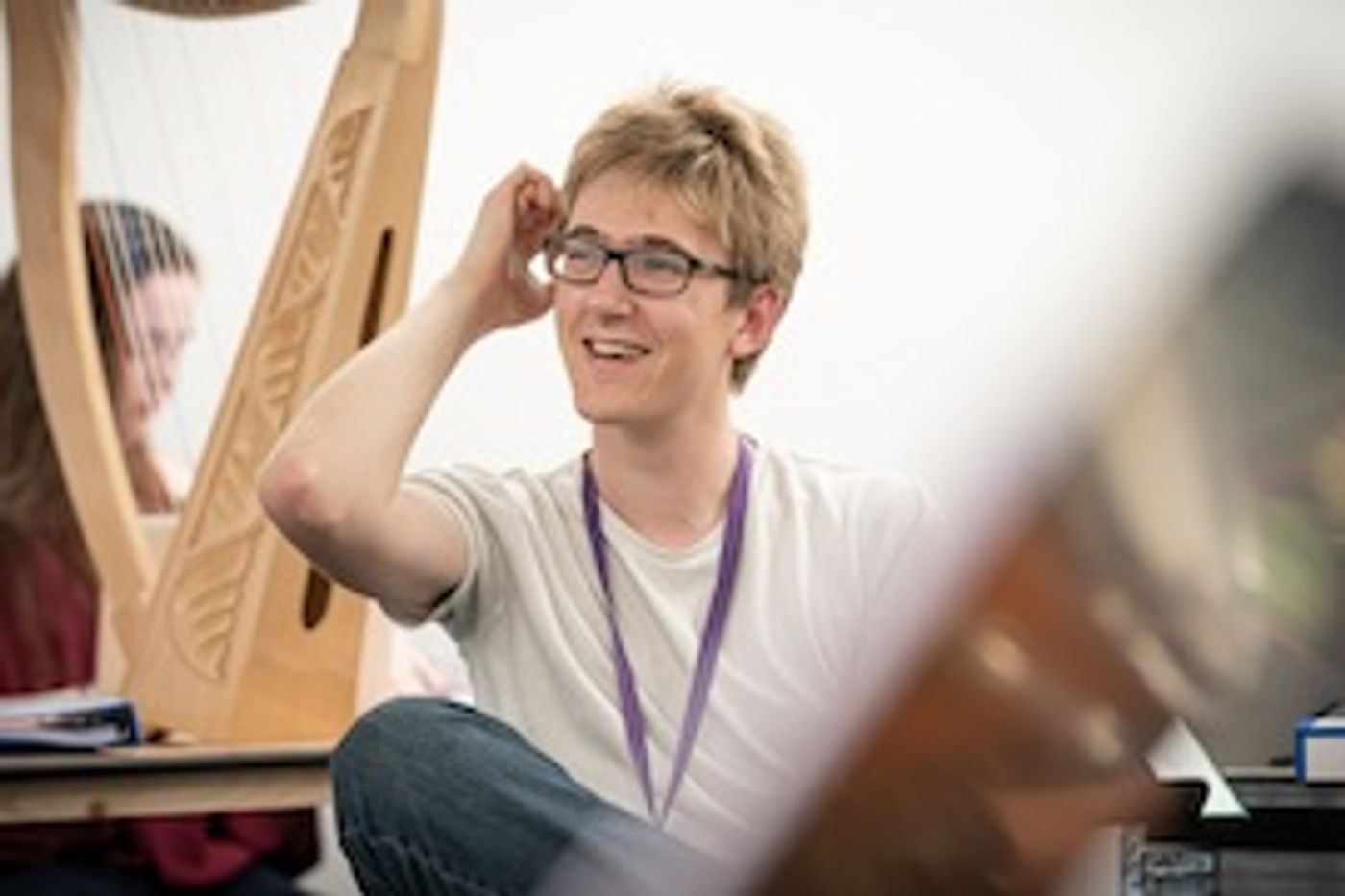
in rehearsal for Ghost Quartet
I haven't changed any of the writing. I think the music director's rearranged some things for the specific four actors that they have, because that piece was originally written for four specific people with very particular talent. It's hard to find a baritone singer who plays cello, guitar and erhu, or a soprano who plays Celtic harp and metallophone.
So they're rearranging some of the music, but as far as I know the lyrics and the text are all staying the same. The staging is a completely blank canvas, so I can't wait to see what they do with it. And it seems like the cast they put together is incredible.
Which particular inspirations did you draw on for Ghost Quartet?
For me, Ghost Quartet was very much a piece of nostalgia in terms of revisiting my childhood. When I became an avid reader in middle school, I was a Stephen King junkie, so I read every Stephen King book. At the same time, I was obsessed with The Twilight Zone and The Outer Limits, any kind of fantasy/sci-fi/horror, genre writing, TV and film.
I ingested that stuff in huge quantities as a kid, so when we decided to do Ghost Quartet and tell ghost stories, I went back into that world and revisited old Twilight Zone episodes. Something about The Twilight Zone, with a sense of creepiness and unease that they create in some of those episodes, was very much an inspiration for Ghost Quartet.
Musically, there's a lot of folk influence in terms of storytelling and murder ballads. George Crumb is a huge inspiration for me, and there's a lot of his sounds in Ghost Quartet. I was basically listening to music that frightens me the most - he writes very frightening music.
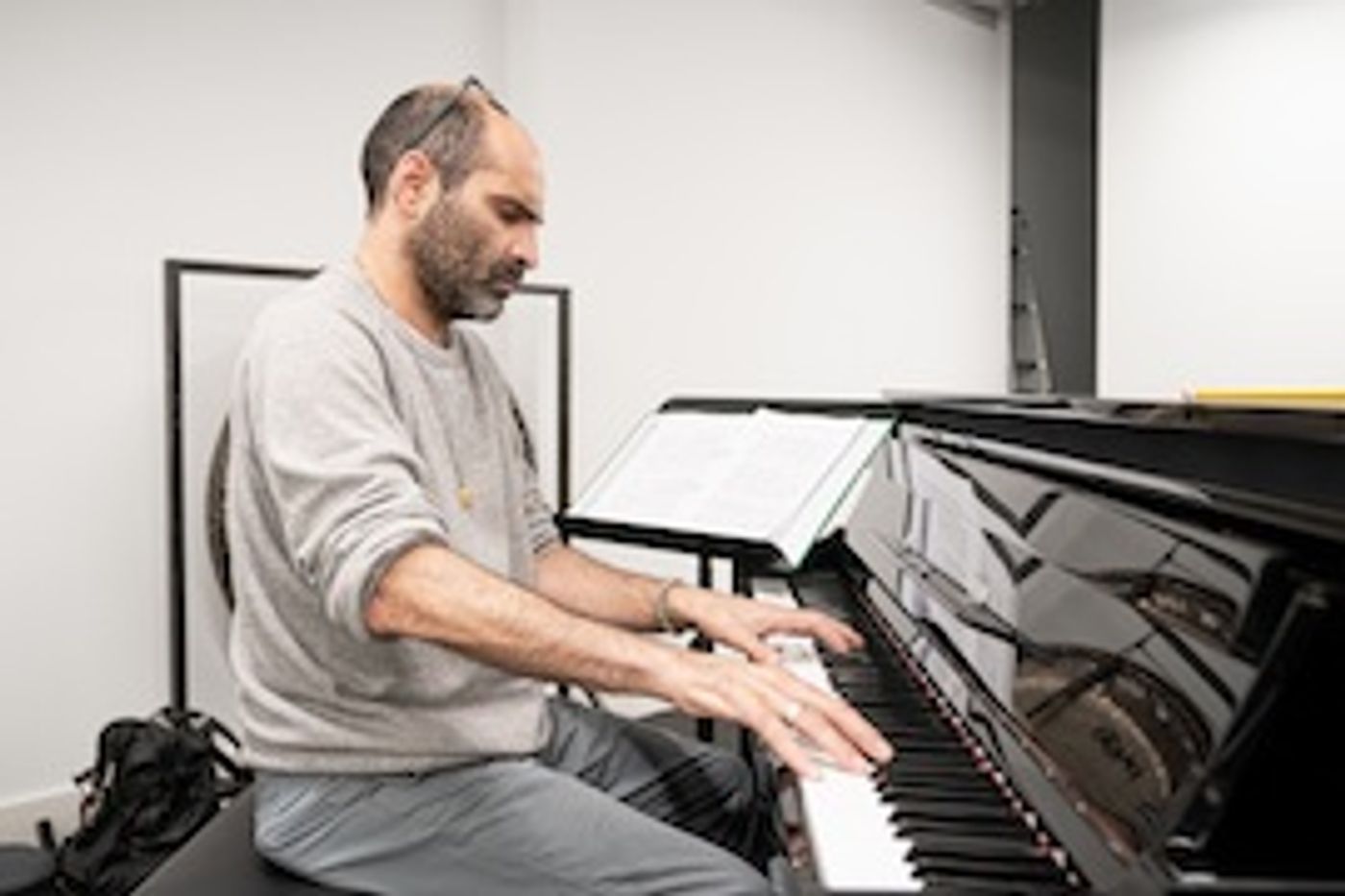
for Ghost Quartet
Given that we have two London stagings of your work this year, might Great Comet be following soon...? (I have my egg maraca at the ready!)
I would love that! There's been lots of conversations about that. I think we're all waiting for the exact right team and moment to come together. I have no doubt it will eventually find its way here - we're just waiting for the right moment, team and space.
Is there anything you can tease about your upcoming Moby-Dick adaptation? And what's it like performing in your own work?
Moby-Dick is going to be massive. I tend to go back and forth in terms of the scope of my pieces, so I did Great Comet, and then once it became a machine, once it transferred to Broadway and there were hundreds of people involved, I was like "Ah!". This is incredible, but also, I want to do something small again. So Ghost Quartet was the show I wrote after that, and it was just the four of us, and the director and the designer, and that was it - six people who made that show.
Coming back to Moby-Dick, it's a gigantic, epic novel, and we're really embracing that formally, so it's going to be a pretty long piece of theatre. And we're excited to say yes, it's a long evening of theatre, and to really embrace the novel for all its strangeness. I think one thing that most adaptations of Moby-Dick get wrong is they just tell the story of Ahab and the whale, and it's not what makes it an amazing novel.
What makes it an amazing novel are all the strange digressions into tautology, and whales, and the artistic depictions of whales, and religion and philosophy, and America, too. It's very much Melville grappling with what this country is in 1851, how this country was made, what it's turning into... So we're taking that idea in 2019 and looking at America in 2019 and where we've come in those 170 years. So yeah, it's an epic piece!
Finally, why do you think audiences should come along to see this production of Ghost Quartet, and what do you hope they'll take from it?
I'm gonna ignore the second part of that question! (laughs) I think audiences take whatever they want and that's fine. Having seen Bill Buckhurst's Sweeney Todd in New York - that's a show that I know well and have seen many productions of, and that was like bar none my favourite production of that show I've ever seen. So I'm just so excited that it's that same team putting this piece on, and having seen the space here, it's a space that's perfectly suited for Ghost Quartet, for an intimate evening of storytelling. So I can't wait to see what they do with it.
Ghost Quartet is at the Boulevard Theatre 24 October-4 January, 2020
Preludes continues at Southwark Playhouse until 12 October
Moby-Dick is at the American Repertory Theater 2 December-12 January, 2020
Photo credit: Marc Brenner
Videos


